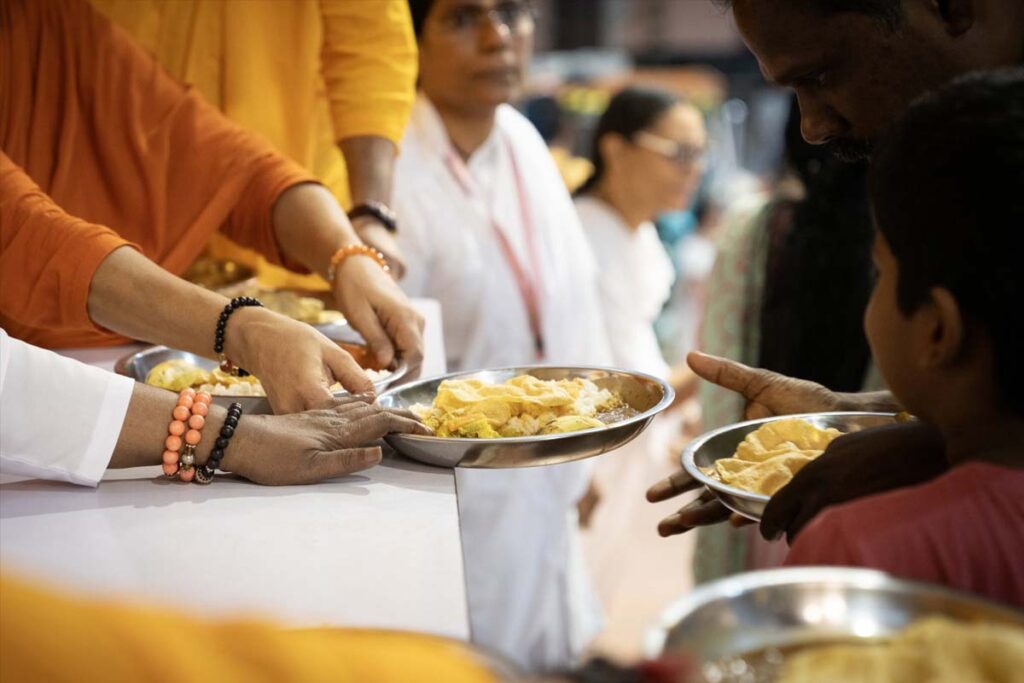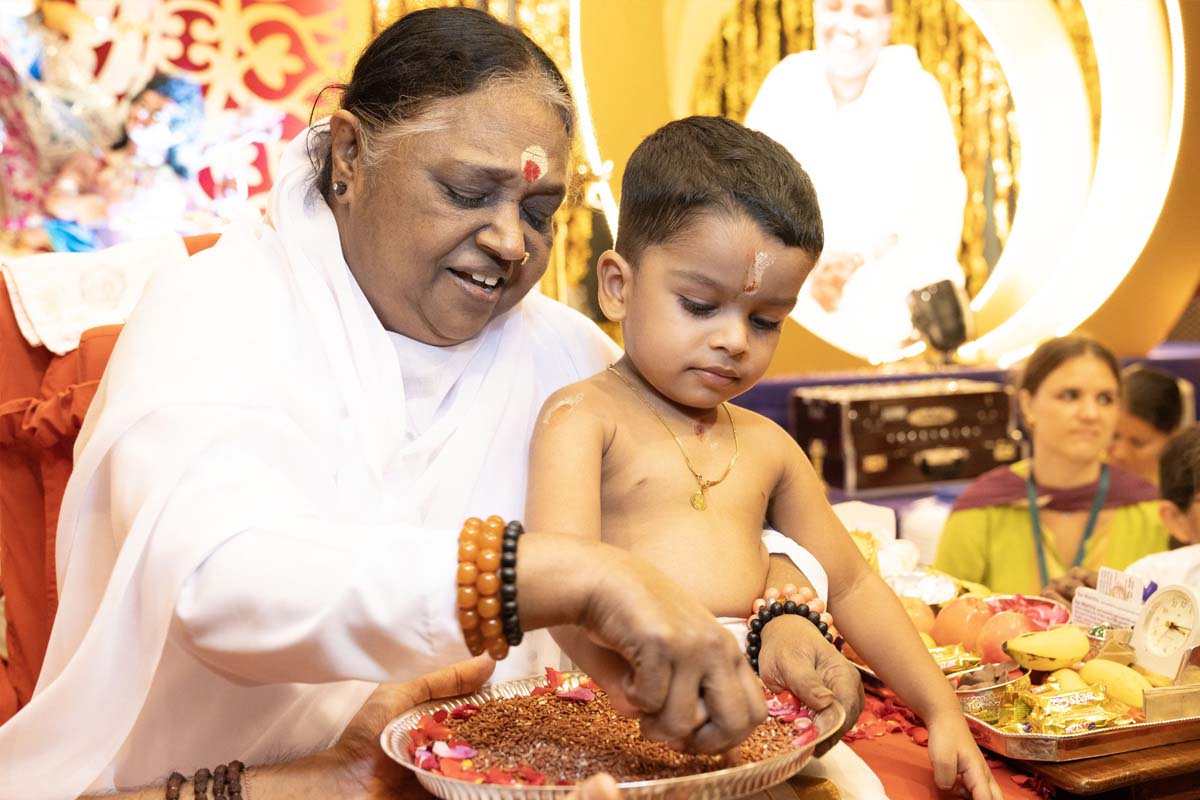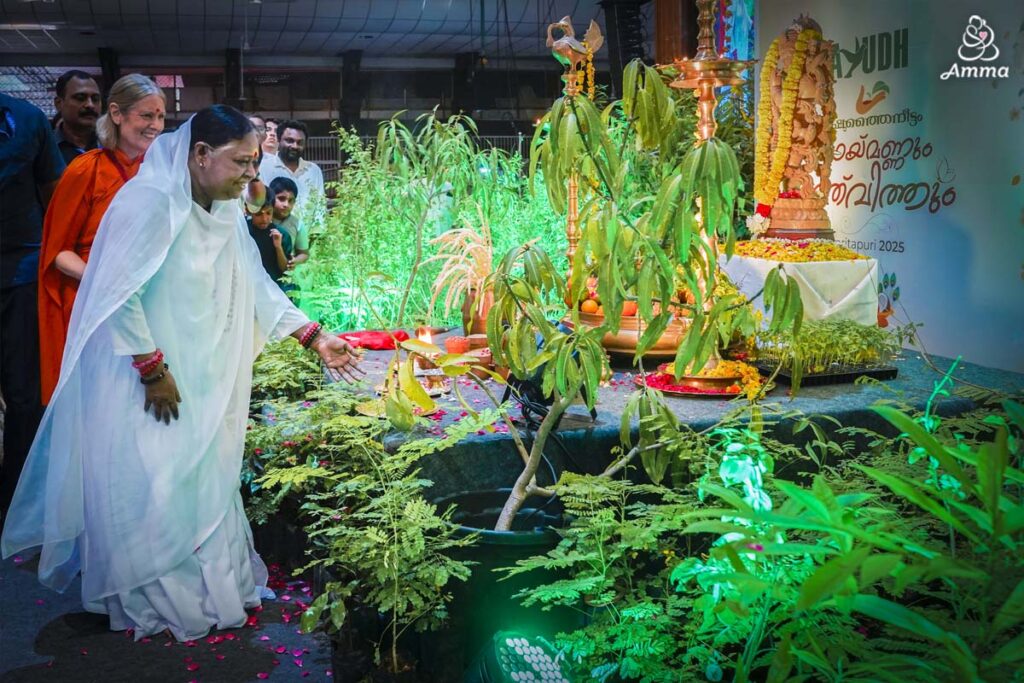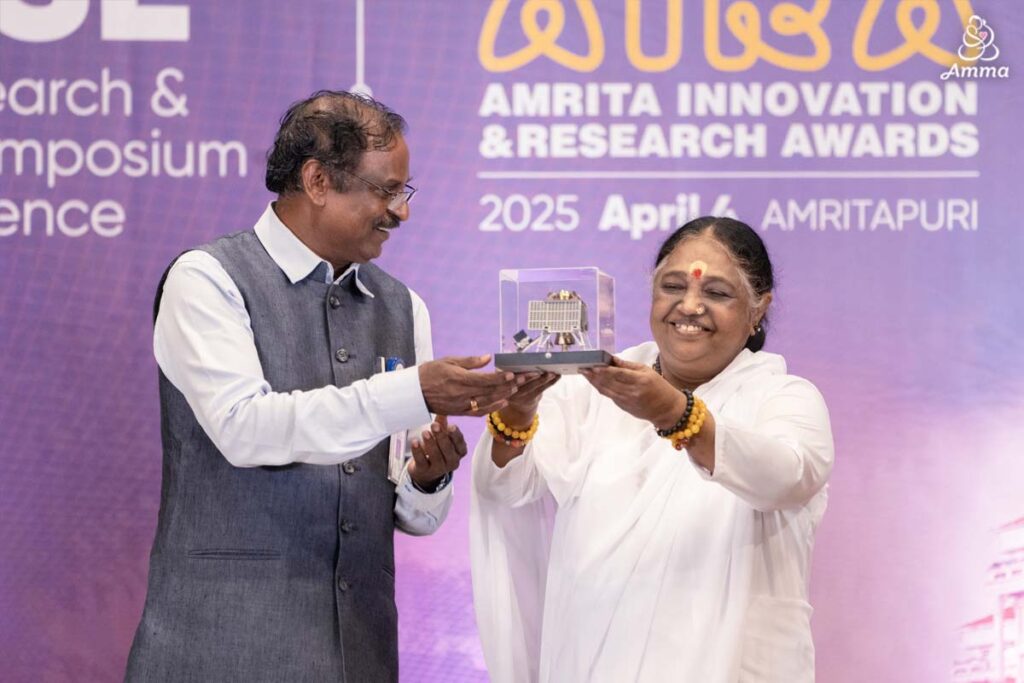This year’s Navaratri festival was celebrated in Amritapuri with joyful gratitude to the Divine Mother and what her power symbolises in the creation of the universe. It is an ancient tradition that has taken place across India since before recorded history.
“Nava” means nine and “ratri” means nights. During this time, people fast and perform various rites to acknowledge the events that occur in the external world, alongside the evolution that is happening within the human mind. On the tenth day, they gather to worship the triumph of light over darkness, good over evil. In Northern regions it is called Dusshera and in the South, Vijayadashami.
“The Navaratri festival is perhaps the most colourful, meaningful and diverse celebration among all the festivals of Sanātana Dharma,” said Amma in her Vijayadashami address in Amritapuri.
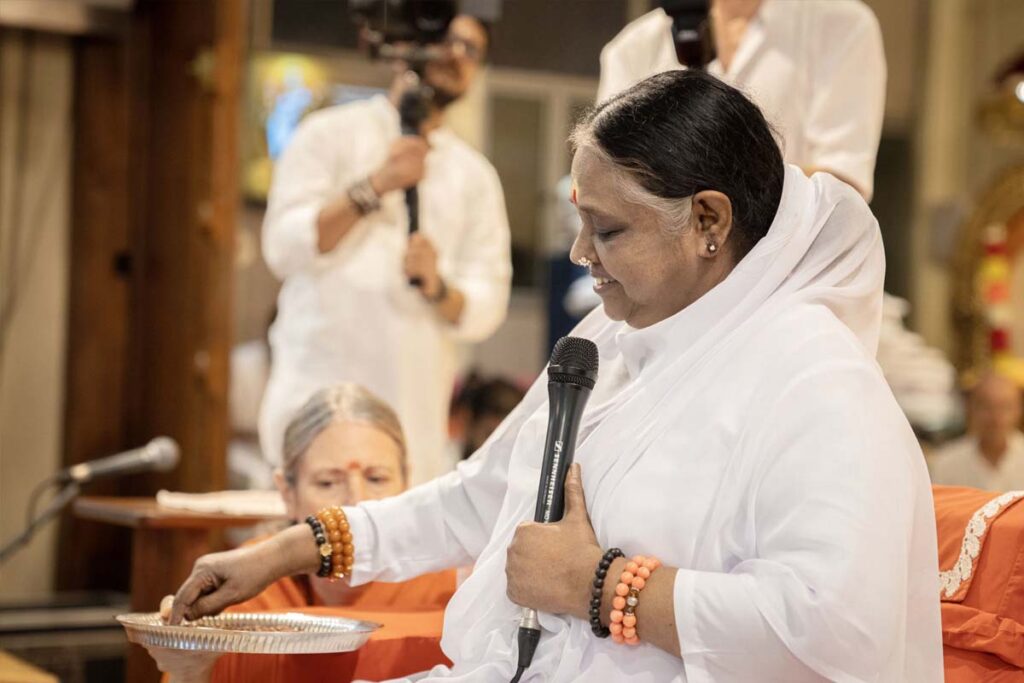
“The underlying principle of Vijayadashami is to go beyond all limitations and realise the infinite. Goddess Durga symbolises the iccha shakti [the power of will], Goddess Lakshmi symbolises the kriya shakti [the power of action], and Goddess Saraswati symbolises the jnana shakti [the power of knowledge]. To fight and defeat the forces of evil within and without us, we need an abundance of will, courage and self-confidence.”
Though traditions vary region-by-region, one thing is common—the active energy of the Supreme Being is what is ultimately worshipped. This is a vital force that eventually takes us beyond all names and forms. So why carry out rites to the form of a feminine power? We live within the framework of Mother Nature as a living and loving entity. She guides us and cares for us with every breath.
We only have the right to respect, worship, love and serve every aspect of this creation.
Amma
Overall, Goddess Durga represents the ultimate goal of restoring dharma, righteous action. To enable this, Goddess Lakshmi symbolises putting positive ideas into practice through virtuous conduct. To gain the necessary abilities, Goddess Saraswati brings the power of good speech, intelligence, and memory which overcome lethargic forces.
“It is only when these three forces are properly balanced in us that we can achieve success in both material and spiritual life,” explained Amma. “The changes that occur in the natural world and the life of living things are but the joyful dance of this Shakti. Hence there is nothing in this universe that can be overlooked or ignored.
“We only have the right to respect, worship, love and serve every aspect of this creation. It is when we develop our likes and dislikes, our attachments and revulsions indiscriminately, that we become sad and get bound.”
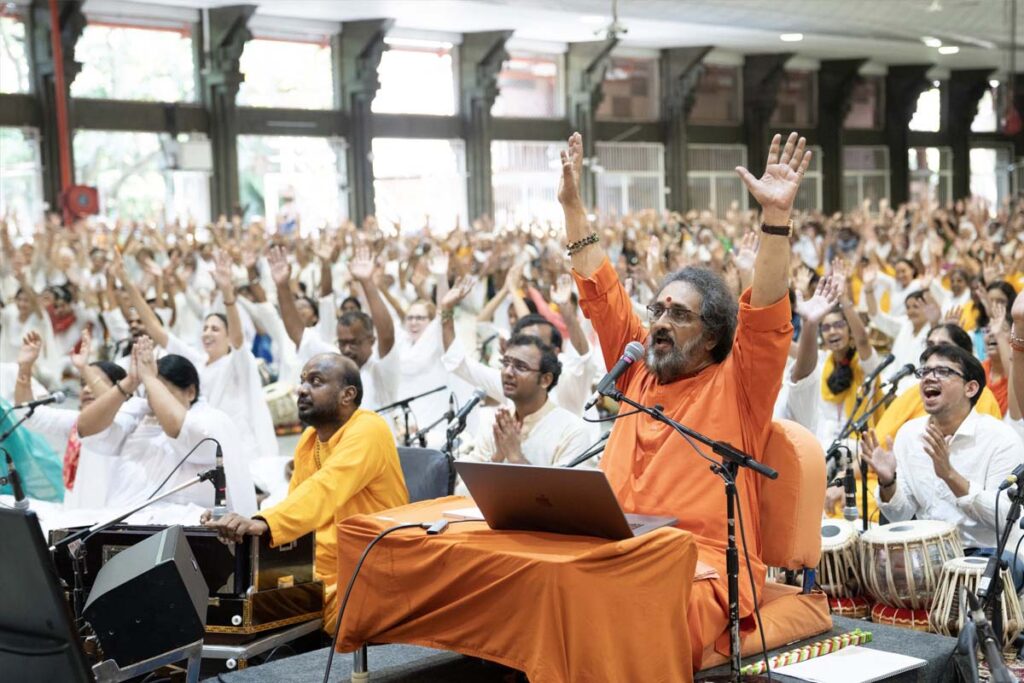
On Maha Navami, the ninth day, Amma led a special prayer with Ashram children. Devotees had ceremoniously placed their books and musical instruments before Saraswati Devi, preparing for a period of intensified prayer and reflection. Their wishes included that the next generations inherit the wisdom and grace that pure knowledge embodies.
When Vijayadashami, the day of victory, finally arrived, Amma performed Vidyāraṃbhaṃ—a ritual that introduces children to the world of knowledge, letters, and the process of learning. The teacher takes the child’s index finger and aids them in writing ‘Hari Sree Ganapataye Namah’ on a plate of rice grains. It is an ancient mantra to signify all letters of the Sanskrit alphabet, which in a subtle form represents Naadarupini Devi, the Goddess of Sound.
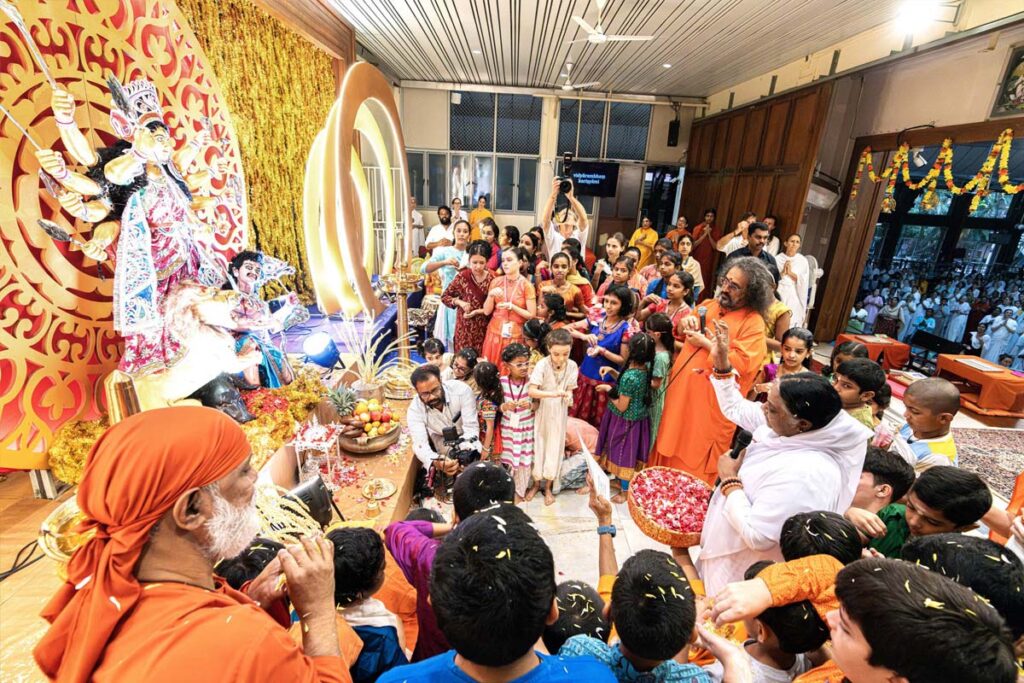
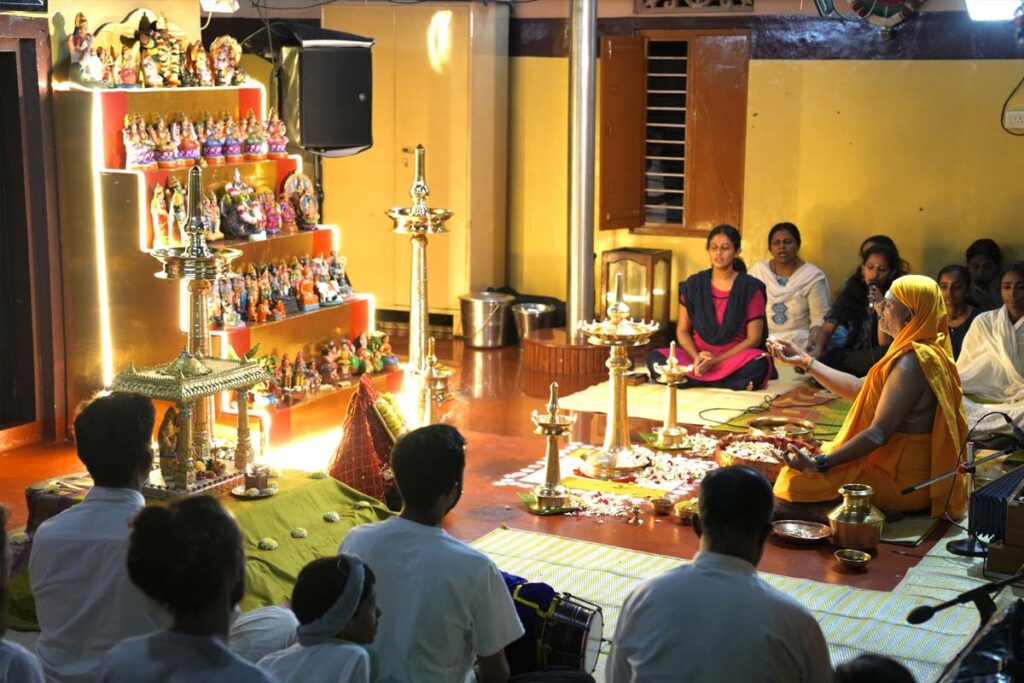
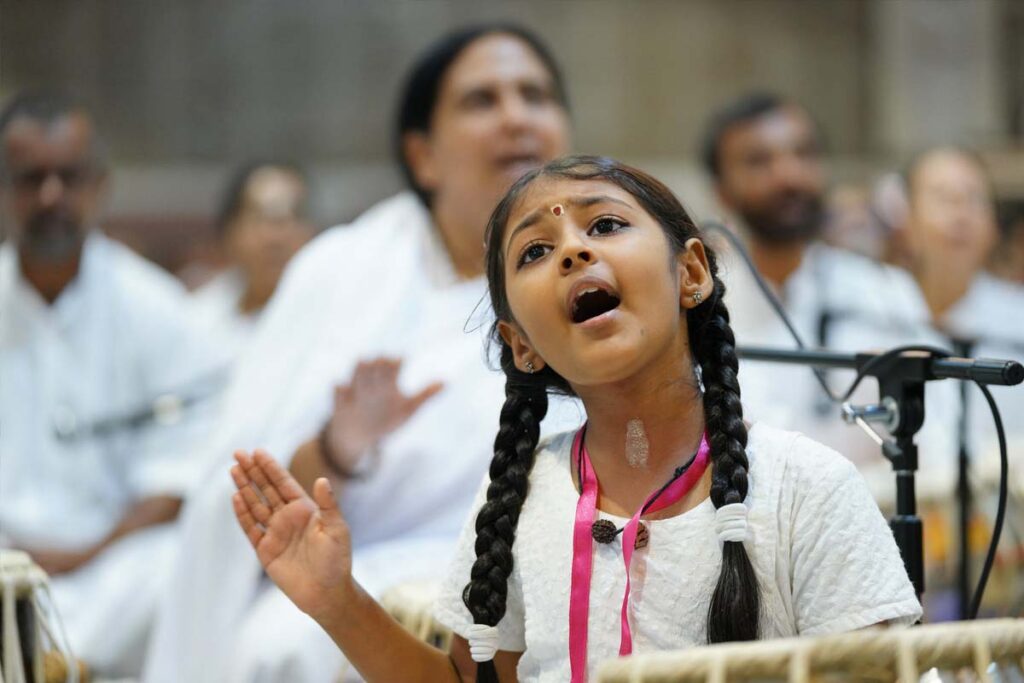
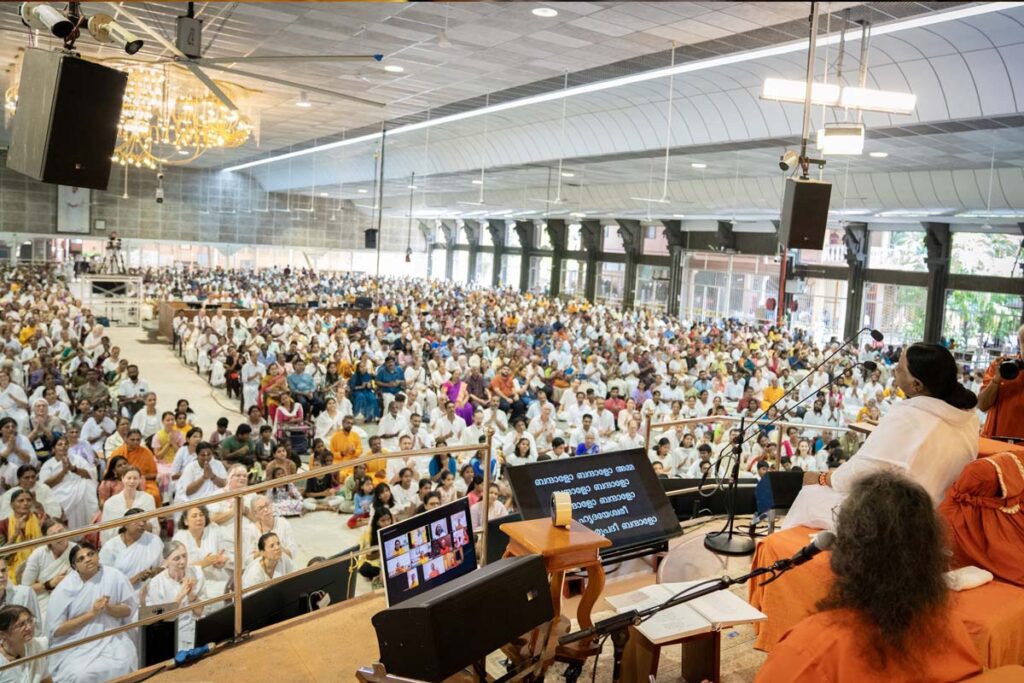
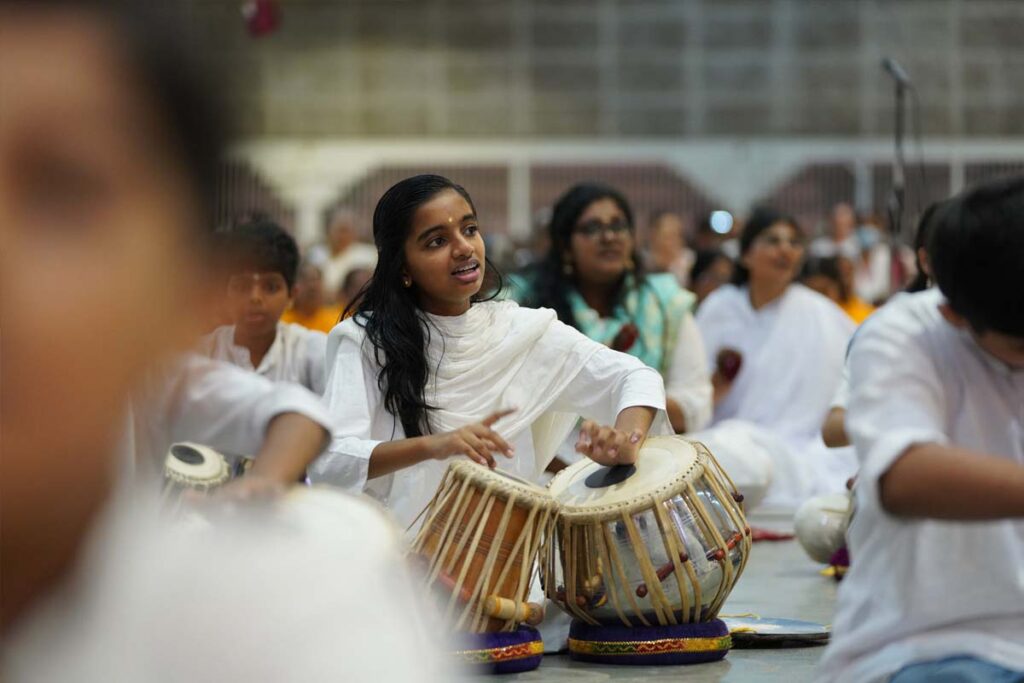
Amma also guided all the ashram residents and visitors in this process. She asked everyone to imagine a teacher of their choice taking their hand to perform the writing ceremony. She emphasised that this is a lesson on how to learn to observe and rectify our own faults instead of just blaming others. While we point our index finger, there are three other fingers on our hand that point right back at us.
Although Navaratri symbolises attaining the ultimate state of Supreme Knowledge, it is a festival of indescribable devotion that binds all hearts in love and compassion. This is a common theme throughout Sanātana Dharma that logic and love finally join to attain the liberation of the soul.
For Vijayadashami, the experience became evident when the celebrations reached a height of divine union between Amma and her disciples and devotees. Swami Amritaswarupananda Puri, Amma’s most senior disciple, led a unique bhajan session dedicated to her in which more than 600 singers and musicians took part. The instruments included tabla, kaimini, harmonium, sitar, and guitar.
Nadopasana, the Sanskrit term for devotion through music, has been known since time immemorial as the art form most intimately connected to the heart. The entire ensemble had gathered for days in advance to make sure they would play well in expressing their love for Amma. This included Swamiji carefully observing and adjusting the set so that the music could flow naturally.
The musical performance Swamiji led in devotion to Amma on Vijayadashami had me in such tears of happiness there is no way to even begin to describe it. And then suddenly Amma called for the microphone so she could join in the singing!
Vaishnavi
As the performance started, many were trembling and prayed for their expressions to be beautiful and pleasing to all gathered, especially Amma. By divine grace, each note passed with beauty and concentration.
Then suddenly, much to everyone’s delight, Amma was so moved that she called for a microphone so she could join in the singing. In the end, both the audience and musicians were completely enraptured, especially when Amma led the final bhajan, Jinki Karuna He Apar—The Goddess Whose Compassion is Infinite.
As is her way, Amma concluded the official celebrations for Vijayadashami by distributing prasad in the form of a full meal for each person who attended. This meant passing out thousands of plates within the scope of just one hour.
In expressing her final wishes for the day, Amma said: “May all my children be able to behold the Universal Mother in every aspect of creation and love and serve everything as such. May you all realise the Supreme Truth and make your lives blessed. May the Grace of the Divine bless my children.”
